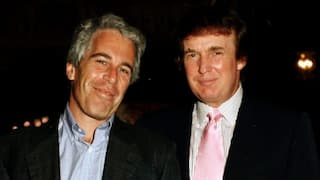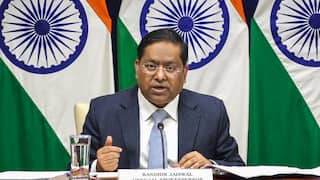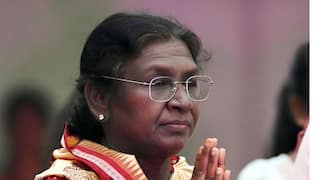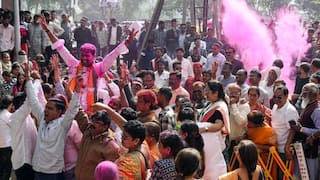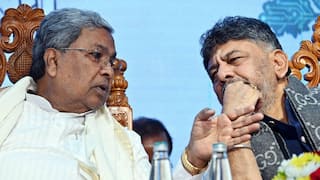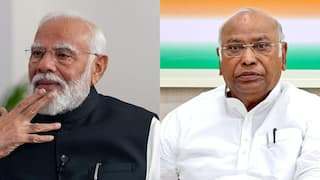Pakistan Political Crisis: Why PM Imran Khan Fell Out With Pakistan Army And if That Caused His Downfall
Anger against Imran Khan isn't new, due to Covid mishandling, rising debt and poor economic performance. However, all seemed well until he had the backing of the Pakistan Army.

New Delhi: Pakistan is again in a political quagmire. The country is embroiled in a turmoil with its parliament standing dissolved and the country staring at fresh elections.
Prime Minister Imran Khan was on the verge of being ousted but managed a face-saver at the eleventh hour. The Opposition brought a no-confidence motion against Khan and the numbers looked clearly against the interim prime minister. However, Deputy Speaker of the National Assembly, Qasim Suri, rejected the motion itself, allowing Khan to stay in the office at least for some days.
Anger against Imran Khan isn't new. However, though Covid mishandling, rising debt and terrible economic performance hurt Imran's chances of becoming the first prime minister to complete the tenure, all looked hunky dory until he had the backing of the Pakistan Army. Things started to change some time back, and Khan's downfall is a proof that he has fallen out with the military.
It's no secret that the army plays the most important role in defining the political leadership of Pakistan. Chief of Pakistan Army Staff Qamar Javed Bajwa seems to have maintained neutrality in the whole affair, which attracted Imran's ire. The estrangement between Bajwa and Khan can be understood by their respective views on America's relationship with Pakistan. Imran has openly criticised the US and blamed it for the political upheaval, while Bajwa argued that Pakistan has "excellent ties" with the US.
PAKISTAN POLITICAL CRISIS | FULL COVERAGE
ISI Chief's Appointment Turned Things Worse
Up until last year, all seemed good between Imran and the military establishment. Things appeared to change after the appointment of a new ISI chief in 2021.
It was widely reported in the media how Bajwa wanted to appoint Lt Gen Nadeem Anjum, replacing Lt. Gen. Faiz Hameed as the new spy chief, but Imran Khan held on to the appointment for nearly three weeks.
According to reports, Imran didn't want to replace Hameed, who was said to have been instrumental in the electoral victory of the former star cricketer. Imran's reluctance reportedly didn't go down well with Bajwa.
There were rumours that Imran and Hameed had some kind of a quid pro quo understanding between them. Bajwa was scheduled to retire in November 2019, but he secured an extension until November 2022. Imran's attitude towards Hameed's transfer gave rise to the speculations that the PM might be arranging a guarantee for next term while the ISI chief could be eyeing the top army post.
Though Bajwa prevailed ultimately, and Anjum was appointed the ISI chief, it did leave a visible dent in his relationship with the PM.
WATCH | Imran Khan Is A 'liar', Pakistan Army Says
Why Was Hameed Replaced?
Hameed was once a trusted man of Bajwa. He was the ISI chief during the Taliban's capture of Kabul in 2021. It was observed that his flamboyance might have cost him the job.
Hameed went to Kabul after tensions between Taliban factions were reported in the media. He was seen publically in Kabul and images were published widely. The optics were not right for the Pakistan military. Pakistan's apparent support to the Taliban is common news, but the presence of the ISI chief in Kabul just days after the capture of power in Afghanistan made things obvious.
Though his transfer as Peshawar corps commander was seen as a promotion, it also meant ISI was now more in control of Bajwa, as pointed out by Pakistan experts.
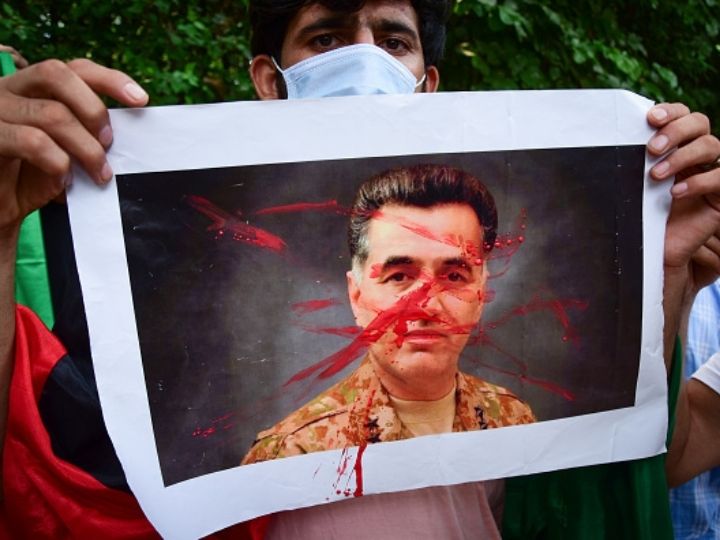
Things Changed Quickly For Imran
When Imran Khan assumed office in 2018, he came with a slogan of "Naya Pakistan", promising new politics. He managed good relations with the army for two-three years.
Problems started for Imran after Bajwa's tenure was extended, as the Supreme Court of Pakistan questioned the move and asked the extension to be approved by Parliament. Imran Khan was left embarrassed.
When India abrogated Article 370 in Jammu and Kashmir in August 2019, Pakistan's opposition parties such as PML(N), PPP and others slammed Bajwa and Imran for "failing Kashmir".
Poor Covid situation and rising debt were other croppling issues, but Imran remained confident, counting on Bajwa. This evidently changed after the Hameed episode.
Imran and Bajwa's contrasting views on the US now signal where things stand between the two.
Imran has been advocating independent foreign policy for a long time, which resulted in Pakistan drifting away from the US. But with Pakistan's military establishment massively benefitting from America's financial aid, Bajwa might not have liked the scenario.


























